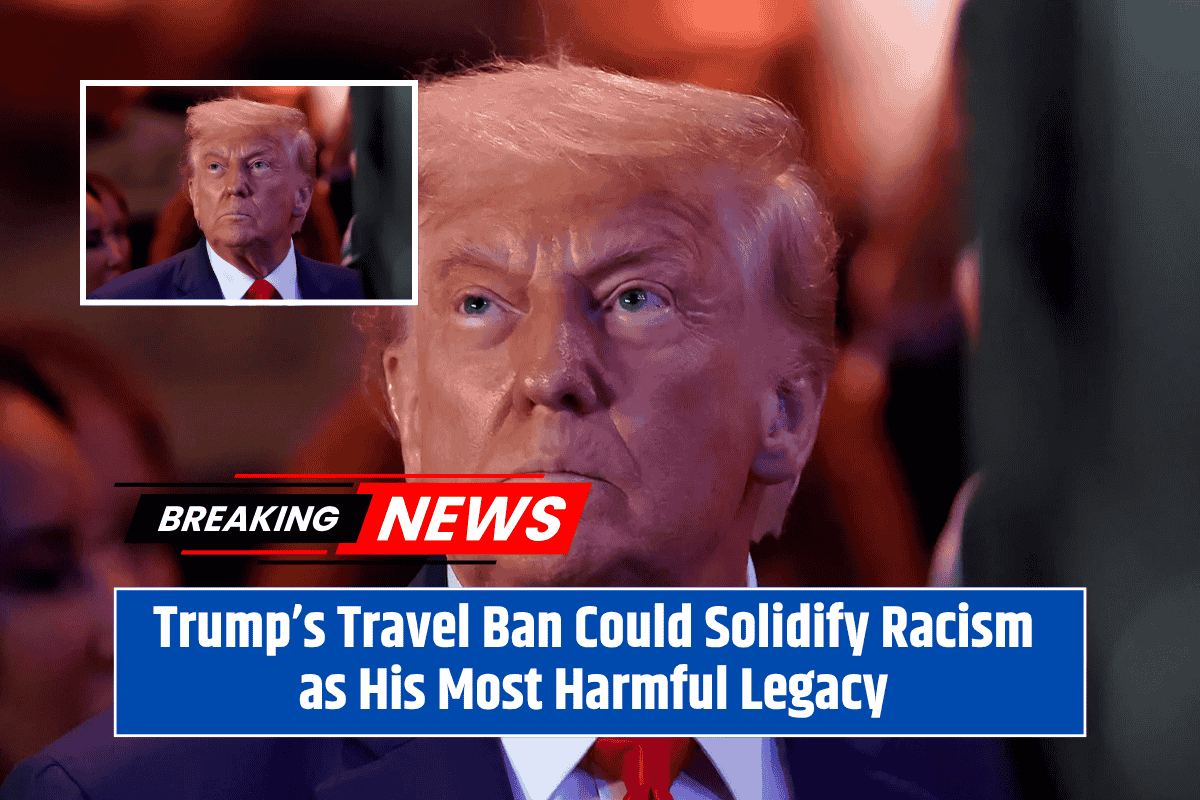This month marks ten years since Donald Trump’s historic announcement to run for president, famously declaring his candidacy as he descended the escalator at Trump Tower. At the time, his remarks about Mexico sending “drugs, criminals, and rapists” set the tone for the controversial and often divisive rhetoric that would define his presidency. Over the years, his inflammatory statements and actions have become routine, leaving a long-lasting impact on American political discourse.
The Trump Era: Normalizing Extremism
The past decade has seen many moments that, once shocking, are now met with little more than indifference. When Trump clashed with tech mogul Elon Musk, even linking Musk to the infamous child sex offender Jeffrey Epstein, the drama played out but did little to disrupt the larger political climate. Likewise, his travel ban on a dozen countries sparked protests in 2017, but now, such extreme actions are expected, not surprising.
The Latest Travel Ban and Its Racial Implications
Trump’s latest travel ban, signed on a Wednesday in June 2025, affects citizens from several of the world’s poorest nations, including Afghanistan, Myanmar, Eritrea, and Haiti. It was framed as a national security measure to protect the U.S. from “foreign terrorists.”
Yet, the ban disproportionately targets Black, Brown, and Muslim populations, raising concerns about racial discrimination. Critics, like Alex Berrios, argue that the ban has no real national security basis but is instead a clear example of racist policymaking.
The countries listed in the ban are seen by many as symbols of Trump’s consistent pattern of targeting communities of color, including immigrants. This pattern reflects a long history of divisive policies and rhetoric aimed at excluding those who don’t fit his vision of America.
A Legacy of Racism and Bigotry
Trump’s actions throughout his career, both in business and politics, have been marked by a history of racial prejudice. From the 1973 lawsuit accusing Trump and his father of discriminating against Black tenants, to his full-page ads in 1989 calling for the death penalty for the Central Park Five (who were later exonerated), Trump has consistently been linked to racist incidents.
His promotion of the “birther” conspiracy theory, which falsely claimed Barack Obama was not born in the U.S., and his comments about immigrants coming from “shithole countries” continue to echo in the current political landscape.
His 2017 response to the deadly white supremacist rally in Charlottesville, where he equated white supremacists with counter-protesters, further solidified his reputation as a figure who downplays racism.
Trump’s inflammatory rhetoric didn’t stop at U.S. borders. He famously referred to the COVID-19 virus as the “Chinese virus” and “kung flu,” terms that critics linked to a rise in anti-Asian hate crimes. His divisive language has contributed to a rise in discrimination and violence against marginalized communities, both domestically and internationally.
The Politics of White Identity and Nationalism
Throughout his presidency, Trump has consistently employed tactics that appeal to white nationalist sentiments. His “Make America Great Again” slogan is often interpreted as nostalgia for a time when racial segregation was more widespread, and many of his policies reflect this yearning for a past that marginalized non-white communities. In 2020, Trump’s rhetoric about immigrants “poisoning the blood” of the country was reminiscent of far-right ideologies.
At the same time, his policies—such as efforts to reduce foreign aid, his crackdown on immigration, and his targeting of diversity initiatives—have made it clear that he is committed to maintaining power by appealing to the far-right base. His actions in the White House, such as attempting to undermine diversity, equity, and inclusion (DEI) efforts, have raised alarms about his influence on future political movements.
The Impact on Global Politics
Trump’s presidency also had significant global consequences. His repeated attacks on international institutions and his criticism of foreign leaders, including the South African president, have further isolated the U.S. from its allies. His baseless claims about South Africa and his efforts to restrict immigration from African nations underscore his preference for a homogenous, predominantly white America.
Moreover, his treatment of African nations and their citizens, often portrayed as criminals or refugees, has strained relationships between the U.S. and countries across the globe. While claiming to protect the U.S. from criminals, he has continually vilified entire nations based on race, perpetuating harmful stereotypes.
A Dangerous Legacy
As the 10-year mark approaches, Trump’s impact on American politics is undeniable. What was once shocking is now normalized. The erosion of political norms, the shift in public discourse, and the rise of Trumpism have fundamentally altered the American political landscape. This shift, often referred to as a reordering of the Overton Window, has made extremist views more mainstream, embedding racism and xenophobia deeper into the political fabric.
Trump’s legacy is not just defined by his time in office but by the lasting effects of his actions and rhetoric on American society. His brand of politics has created a divide that may take years to repair, with the consequences of his presidency continuing to unfold.
